Skill Blockchain
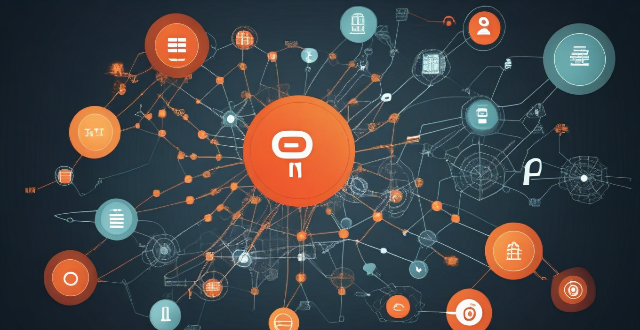
What skills are needed to work with blockchain technology ?
Working with blockchain technology requires technical skills in programming languages, distributed systems, cryptography, networking, data structures and algorithms, database management, cloud services, version control, testing and debugging, and DevOps. It also demands business acumen in project management, market analysis, financial literacy, and business development. Legal and ethical understanding is crucial for regulatory compliance, privacy and security, ethical considerations, and intellectual property. Communication skills are needed for clear communication, documentation, and presentation. As blockchain evolves, professionals must stay updated with advancements and best practices.
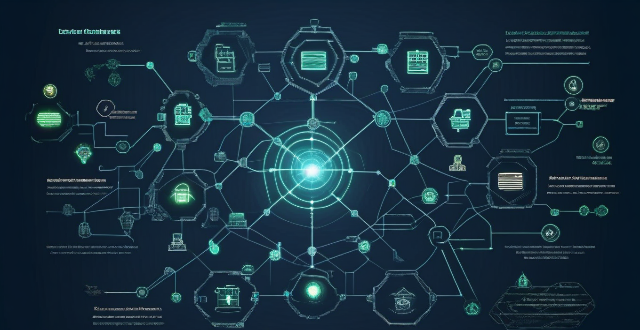
What is the future of blockchain beyond cryptocurrency ?
This article explores the potential applications of blockchain technology beyond cryptocurrency, highlighting key areas such as decentralized finance (DeFi), supply chain management, healthcare, government services, and intellectual property rights management. It emphasizes how blockchain can improve transparency, security, efficiency, and accessibility in these sectors through features like peer-to-peer transactions, smart contracts, tokenization, traceability, interoperability, data privacy, identity management, public records storage, voting systems, proof of ownership, streamlined licensing, and fraud prevention. The article concludes by stating that the future prospects of blockchain technology are vast and promising, offering numerous opportunities for innovation and transformation across various industries.
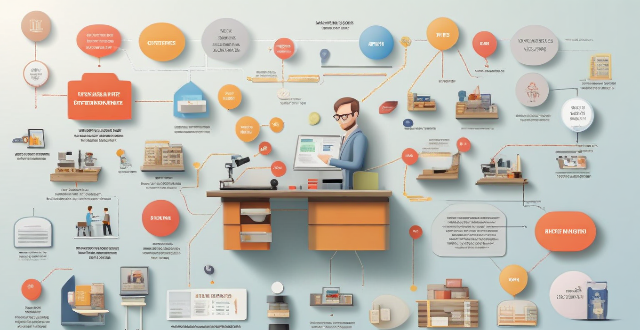
How can blockchain technology be used to prevent counterfeit products ?
Blockchain technology is a powerful tool in the fight against counterfeit products. It ensures product authenticity through digital certificates and smart contracts, enhances traceability by providing a transparent view of the supply chain and end-to-end tracking, improves accountability with data integrity and a complete audit trail, leverages decentralization to prevent manipulation, integrates with IoT devices for automatic verification and real-time monitoring, collaborates with regulatory authorities for compliance and cross-border cooperation, and educates consumers and businesses on its benefits. With blockchain, we can expect significant reductions in counterfeit products in the marketplace.

Can blockchain technology revolutionize the financial industry ?
Blockchain technology has the potential to revolutionize the financial industry by introducing a decentralized, transparent, and secure way of conducting transactions. In this article, we will explore how blockchain technology can transform the financial sector and discuss its benefits and challenges. Benefits of Blockchain in Finance: - Decentralization: Elimination of intermediaries and increased efficiency. - Transparency: Immutable records and audit trail for regulatory compliance. - Security: Distributed ledger and cryptography ensure secure transactions. Challenges of Blockchain in Finance: - Regulatory uncertainty: Lack of clear regulations and compliance issues. - Scalability: Limited throughput and ongoing research for scaling solutions. - Interoperability: Integration with legacy systems and lack of standardization. Potential Use Cases for Blockchain in Finance: - Payments and Remittances: Faster and cheaper cross-border transactions. - Trade Finance: Streamlined processes and automated smart contracts. - Securities Settlement: Real-time settlement and fractional ownership of assets. In conclusion, blockchain technology has the potential to revolutionize the financial industry by introducing a decentralized, transparent, and secure way of conducting transactions. While there are challenges to overcome, such as regulatory uncertainty, scalability concerns, and interoperability issues, the benefits of blockchain in finance are undeniable. As the technology continues to evolve and mature, we can expect to see increased adoption and innovation in the financial sector powered by blockchain technology.

How does blockchain differ from traditional databases ?
Blockchain technology and traditional databases are two different systems for storing and managing data. While they share some similarities, there are several key differences between the two. In this article, we will explore these differences in detail. One of the most significant differences between blockchain and traditional databases is the level of decentralization. Traditional databases are typically centralized, meaning that they are managed by a single entity or organization. On the other hand, blockchain is a decentralized system where data is stored across multiple nodes in a network. Another key difference between blockchain and traditional databases is immutability. Once data is added to a block in a blockchain, it cannot be changed or deleted. This is in contrast to traditional databases, where data can be modified or deleted by authorized users. Blockchain uses a consensus mechanism to validate transactions and add new blocks to the chain. This is different from traditional databases, which rely on a central authority to validate transactions and make changes to the database. Blockchain technology also supports smart contracts, which are self-executing contracts with the terms of the agreement between buyer and seller being directly written into lines of code. Traditional databases do not support this feature. In conclusion, while blockchain and traditional databases share some similarities, there are several key differences between the two systems. Blockchain's decentralization, immutability, consensus mechanism, and support for smart contracts make it a unique and powerful tool for managing data in various industries.
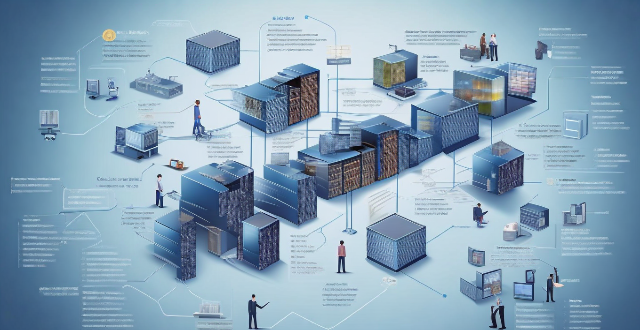
How could blockchain impact the voting system and democracy ?
Blockchain technology has the potential to revolutionize voting systems and democracy by enhancing security, transparency, accessibility, and efficiency. Secure and immutable records ensure that votes cannot be altered or deleted, while transparent and auditable processes reduce the risk of electoral fraud. Decentralized voting increases accessibility for people with disabilities or living in remote areas, and reduces costs associated with traditional voting methods. Faster results and real-time tracking further streamline the process. However, challenges such as technical complexity and privacy concerns must be addressed. Ongoing research and development in blockchain technology will play a crucial role in shaping its future impact on democracy, potentially leading to more inclusive and trustworthy democracies worldwide.
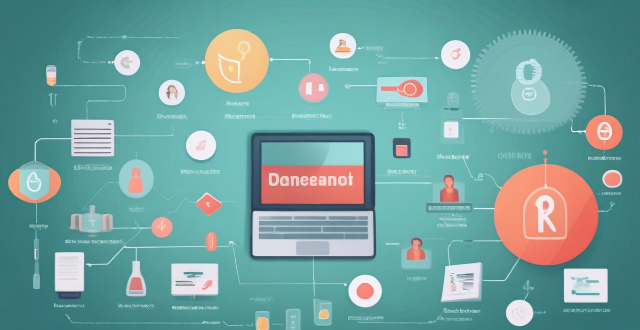
How can blockchain technology revolutionize the healthcare sector ?
Blockchain technology has the potential to revolutionize the healthcare sector by addressing key challenges such as data privacy, security, interoperability, and efficiency. Key features of blockchain include decentralization, transparency, immutability, and security. Applications of blockchain in healthcare include electronic health records management, drug supply chain management, clinical trials and research, health insurance claims processing, and telemedicine and remote monitoring. As more healthcare organizations adopt blockchain, we can expect significant improvements in patient care, research, and overall healthcare delivery.
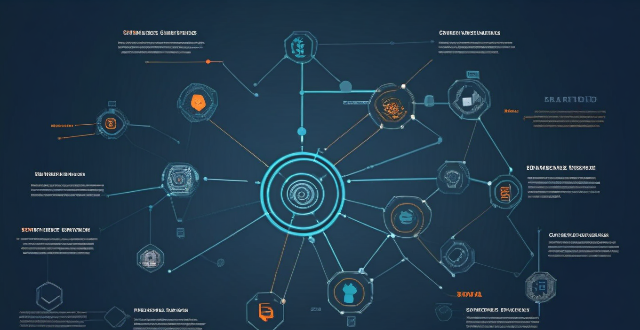
What are the potential drawbacks or challenges of implementing blockchain ?
The article discusses several potential issues with blockchain technology, including lack of regulation, scalability concerns, security vulnerabilities, and interoperability challenges. It highlights the need for clear legal and compliance guidelines, tax treatment standards, improved transaction speeds, reduced energy consumption, ongoing security measures, thorough smart contract testing, and increased standardization across different blockchains. Overall, while blockchain offers many potential benefits, these challenges must be addressed in order for the technology to reach its full potential.

What is blockchain technology and how does it work ?
Blockchain technology is a decentralized, digital ledger that records transactions securely and transparently. It was originally designed for Bitcoin but has since been adapted for various applications. Key features include decentralization, transparency, immutability, and security. The technology works through transaction creation, broadcast, verification, block creation, consensus, addition to the blockchain, and perpetuation. Benefits include enhanced security, elimination of intermediaries, increased transparency, reduced costs, and improved efficiency. Blockchain technology has potential applications beyond cryptocurrency and could transform industries such as finance and supply chain management.
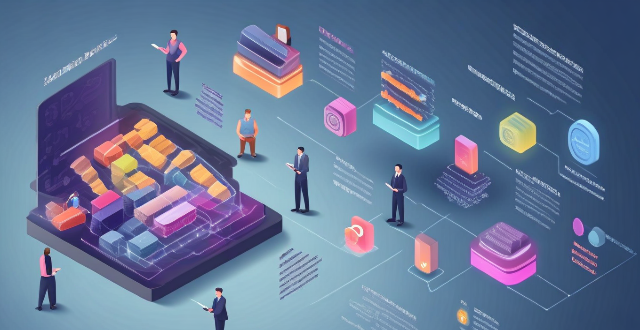
What are smart contracts in the context of blockchain ?
Smart contracts are self-executing digital agreements that operate within the blockchain, providing a decentralized and trustless system for transactions. They are created using specific programming languages and deployed onto a blockchain platform. Once conditions are met, smart contracts execute automatically, with each node verifying the process to ensure accuracy. Applications include cryptocurrencies, supply chain management, real estate, insurance, and legal agreements. However, challenges like immutability, complexity, legal standing, and privacy concerns must be addressed.

What is the role of blockchain in the financial industry ?
Blockchain technology has emerged as a game-changer in the financial industry, offering unprecedented levels of security, transparency, and efficiency. Its decentralized nature and immutable ledger system have paved the way for innovative applications that are reshaping the financial landscape. In this article, we will explore the various roles of blockchain in the financial industry. One of the key advantages of blockchain is its ability to create trust without the need for intermediaries. Traditional financial systems rely on central authorities, such as banks or clearinghouses, to verify and record transactions. With blockchain, transactions are verified by a network of nodes, each of which maintains a copy of the ledger. This decentralized approach eliminates the need for intermediaries, reducing costs and increasing efficiency. Blockchain provides a transparent and auditable ledger of all transactions. Each transaction is recorded on the blockchain in a tamper-resistant manner, ensuring that any attempt to alter the ledger will be immediately apparent. This level of transparency enhances accountability and reduces the risk of fraud or errors. Smart contracts are self-executing contracts with the terms of the agreement between buyer and seller being directly written into lines of code. These contracts can automatically execute transactions when certain conditions are met, eliminating the need for intermediaries and reducing the risk of non-performance or disputes. Smart contracts have the potential to revolutionize many areas of finance, including insurance, real estate, and supply chain management. Distributed ledger technology (DLT) is at the heart of blockchain's capabilities. It allows multiple parties to have access to a shared database that is secure, transparent, and tamper-proof. DLT enables faster settlement times, improved cash management, and reduced operational risks. It also facilitates cross-border payments and remittances, making them more efficient and cost-effective. Tokenization involves representing physical assets, such as stocks, bonds, or real estate, as digital tokens on a blockchain. This process enables fractional ownership, easier transferability, and increased liquidity. Tokenization also allows for programmable assets, where rules can be embedded into the tokens themselves, enabling automated compliance with regulations and contractual obligations. Blockchain can be used to create a secure and decentralized identity verification system. This system would allow individuals to control their own identity information and share it selectively with third parties while maintaining privacy. Such a system could significantly reduce identity fraud and streamline processes that require identity verification, such as opening bank accounts or applying for loans. Blockchain's transparency and immutability make it an ideal tool for regulatory compliance. By using blockchain to record all financial activities, regulators can easily monitor and analyze transactions in real-time, identifying potential violations and enforcing compliance more effectively. This could lead to more efficient regulation and better protection for consumers and investors. In conclusion, blockchain technology has the potential to transform the financial industry by improving efficiency, reducing costs, enhancing security, and promoting transparency. From decentralization and trust to smart contracts and tokenization, blockchain is poised to disrupt traditional financial models and create new opportunities for innovation and growth. As adoption continues to accelerate, we can expect to see even more exciting developments in the years ahead.
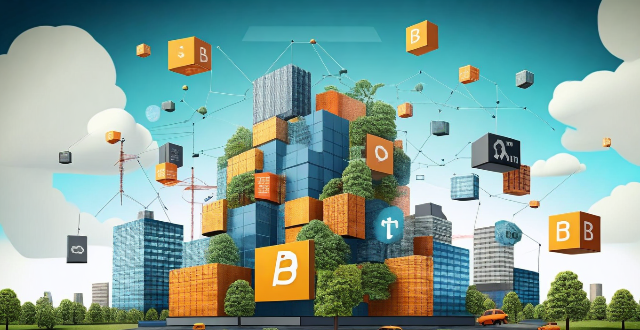
What are the benefits of using blockchain in business ?
The article discusses the various benefits of using blockchain technology in business operations. These benefits include increased transparency and trust, improved security, reduced costs and efficiency, greater control and traceability, enhanced data management, and potential for innovation and new business models. Blockchain's decentralized nature and cryptographic security make it a secure and efficient way to store and manage data, automate processes, and track the movement of goods and services. The technology also offers new possibilities for innovation and disruptive business models.
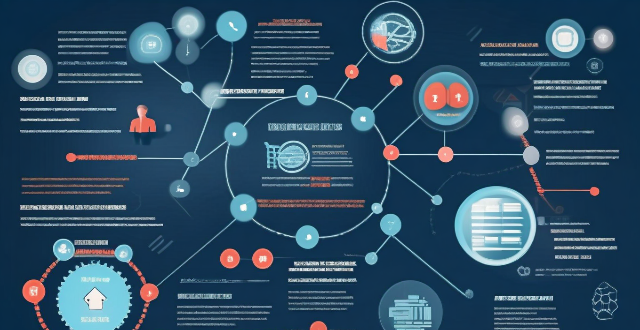
How can blockchain solve the issue of supply chain management ?
Blockchain technology can revolutionize supply chain management by addressing various challenges faced by businesses. It improves visibility and traceability, reduces paperwork and manual processes, streamlines payment processes, enhances data security, and builds trust among stakeholders. With its potential to solve many of the issues faced by businesses in supply chain management, blockchain is an ideal solution for modern supply chains.

What is blockchain technology and how does it relate to cryptocurrency ?
Blockchain technology is a decentralized, distributedBlockchain technology is a decentralized, distributed transactions in a secure and im It is the foundational structure for cryptocurrencies, which are digital or virtual currencies that use cryptography for security and operate independently of a central bank. The key features of blockchain include decentralization, immutability, transparency, and security. Cryptocurrencies rely on blockchain technology to maintain a transparent and secure system for recording transactions without intermediaries like banks. Transactions are validated by network participants through consensus algorithms like Proof of Work (PoW) or Proof of Stake (PoS), and new coins can be issued as rewards for those who validate transactions and maintain the network. Overall, blockchain technology enables a peer-to-peer electronic cash system that is both secure and decentralized.

What are the challenges and limitations of implementing blockchain technology in various industries ?
The challenges and limitations of implementing blockchain technology in various industries include lack of regulatory clarity, scalability issues, interoperability problems, high energy consumption, limited expertise and talent, privacy concerns, and adoption barriers. These challenges need to be addressed for widespread adoption of blockchain technology.
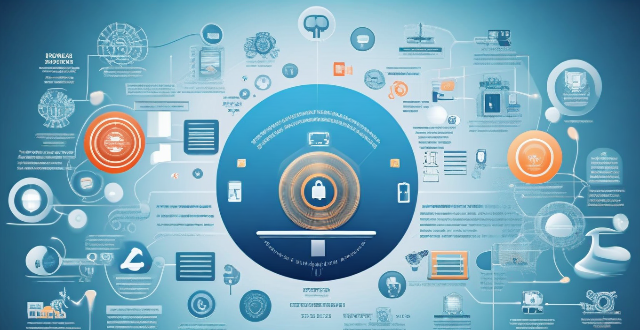
Can you explain how blockchain technology works and its potential applications ?
Blockchain technology is a decentralized, digital ledger that records transactions in a secure and transparent manner. It works through a peer-to-peer network of computers (nodes) without a central authority, using cryptography to secure data and verify participants' identities. A consensus mechanism ensures all nodes agree on the state of the ledger, making it immutable and transparent. Transactions are validated, grouped into blocks, added to the chain, and distributed to all nodes. Potential applications include finance (cryptocurrencies, smart contracts, remittances), non-financial areas (supply chain management, health records, voting systems, identity verification), and other sectors like real estate and intellectual property rights. Blockchain promises increased efficiency, security, and transparency across various industries.

How can blockchain technology be used in voting systems to ensure transparency and fairness ?
Blockchain technology, known for its role in cryptocurrencies, can enhance voting systems by ensuring transparency, security, and fairness. It provides immutable record keeping, public verifiability, and a comprehensive audit trail. Blockchain also protects voters' identities, decentralizes the voting process, and automates vote counting. Implementing this technology requires designing the blockchain infrastructure, developing a user-friendly interface, testing, pilot programs, stakeholder education, and full implementation. However, challenges such as scalability, user adoption, legal and regulatory hurdles, and technical security must be addressed.

Can nutrition affect an athlete's skill level ?
Nutrition is vital for athletes' overall well-being and performance, including skill enhancement, recovery, and injury prevention. It affects cognitive function, physical performance, and recovery, ultimately influencing an athlete's skill level. A balanced diet with proper nutrients can help athletes reach their full potential and succeed in their sports.

Can playing multiple sports help in skill development ?
Participation in multiple sports can enhance overall athleticism and skill development by improving physical attributes, reducing injury risk, developing transferable skills, and promoting mental toughness. It also offers social benefits such as expanded networks and increased opportunities for exposure. While specialization has its advantages, playing multiple sports can help athletes become well-rounded competitors.

How important is rest and recovery in skill enhancement ?
The text discusses the importance of rest and recovery in the process of skill enhancement. It highlights the cognitive and physical benefits of taking breaks, such as improved mental clarity, memory consolidation, muscle recovery, and injury prevention. The practical implications include avoiding burnout, enhancing performance, and strategies for incorporating rest into practice schedules. Overall, the text emphasizes that rest is a crucial component of long-term skill development and should be given equal consideration alongside deliberate practice and training regimens.

How can team sports help in individual skill development ?
Team sports contribute significantly to individual skill development by improving communication skills, enhancing leadership abilities, increasing self-confidence, bettering time management, improving social skills, promoting physical fitness and coordination, providing opportunities to learn from mistakes, and fostering adaptability.

How do I choose a tennis training camp that fits my skill level ?
Choosing a tennis training camp that fits your skill level can significantly improve your game. Here are some tips on how to select the right camp: 1. Assess your current skill level by considering your experience, strengths and weaknesses, and fitness level. 2. Research different camps that offer programs specifically designed for your skill level using online directories, social media groups, and reviews from previous attendees. 3. Check the coaches' qualifications and experience, including their credentials, coaching philosophy, and track record of working with players at your skill level. 4. Consider the quality of the camp's facilities and amenities, such as well-maintained courts, access to equipment, and onsite amenities like locker rooms and dining areas. 5. Evaluate the camp's reputation and success rate by reading reviews, asking for referrals, and contacting the camp directly to learn more about their success stories.

Can blockchain technology help combat climate change ?
Blockchain technology can contribute to the fight against climate change by enhancing transparency, efficiency, and traceability in areas such as carbon credit trading, renewable energy management, and sustainable supply chain management. However, challenges related to scalability, energy consumption, and regulation must be addressed to fully realize its potential benefits.

Is speed reading a natural ability or a skill that can be learned ?
Speed reading is a topic of interest for many individuals who wish to improve their reading efficiency and comprehension. The question arises whether speed reading is a natural ability that some people possess, or if it is a skill that can be learned and developed through practice and training. While there may be some individuals who possess a natural ability for speed reading, it is generally accepted that speed reading is a skill that can be learned and improved upon through practice and training. By employing specific techniques and strategies, anyone can enhance their reading speed and comprehension, ultimately increasing their productivity and knowledge acquisition.
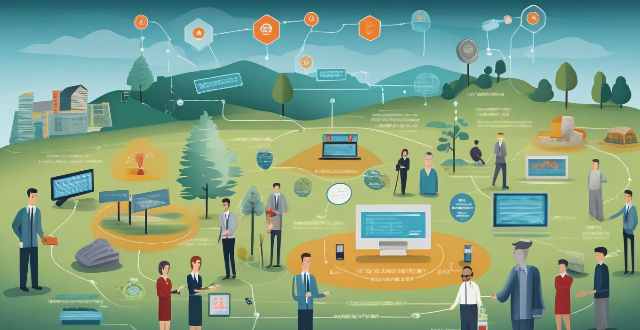
Can blockchain technology improve data security and privacy ?
Blockchain technology has been touted as a revolutionary tool that can improve data security and privacy. Its decentralized nature, encryption, and transparency make it difficult for attackers to compromise the network. Additionally, its anonymity, control over personal data, and smart contracts enhance privacy by giving individuals more control over their information.
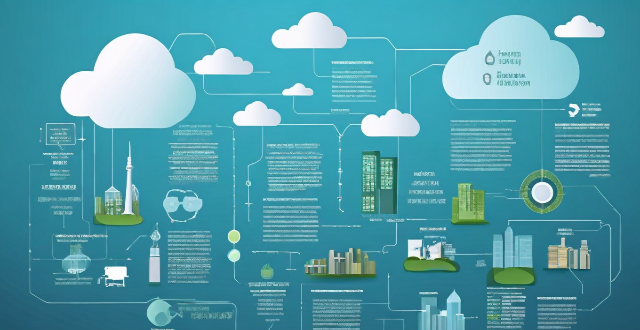
What are some real-world applications of blockchain technology ?
Blockchain technology is being used in various industries to provide secure, decentralized, and transparent solutions. In finance and banking, it is used for cryptocurrencies, payment processing, and smart contracts. In supply chain management, it is used for tracking and traceability, inventory management, and logistics optimization. In healthcare, it is used for medical records management, drug traceability and anti-counterfeiting, and research data sharing. In government and public sector, it is used for voting systems, digital identity management, and land registry. In energy and utilities, it is used for renewable energy trading and smart grid management.

How does blockchain ensure decentralization and transparency ?
Blockchain technology ensures decentralization and transparency through a distributed ledger, consensus mechanisms like Proof of Work (PoW), Proof of Stake (PoS), and Delegated Proof of Stake (DPoS), node autonomy, immutable records via cryptographic hashing, public accessibility of the ledger, verifiable transactions using digital signatures, and smart contracts. These features create an environment resistant to manipulation and corruption, offering a paradigm shift in secure and accountable digital interactions.

What are the most promising applications of blockchain technology ?
Blockchain technology offers secure, decentralized, and transparent solutions in various industries. Promising applications include cryptocurrencies, smart contracts, remittances, trading, supply chain traceability, healthcare data management, real estate ownership, government services, and more. These applications can streamline processes, reduce costs, and improve trust and collaboration between parties. As the technology matures, more innovative uses are expected to emerge.

In what industries is blockchain being explored currently ?
Blockchain technology is being explored across various industries to improve transparency, security, and efficiency. Here's a summary of its applications in different sectors: 1. **Finance and Banking**: Secure and efficient financial operations like international money transfers, smart contracts, trading, clearing, and loyalty rewards programs. 2. **Healthcare**: Secure patient data management, clinical trials, drug traceability, and insurance claims processing. 3. **Supply Chain Management**: End-to-end traceability for food safety, pharmaceutical supply chain, luxury goods authentication, and carbon credit trading. 4. **Real Estate**: Efficient property transactions, ownership records, rent collection, and dispute resolution. 5. **Education**: Verification and secure storage of academic credentials, lifelong learning records, and scholarship disbursements. 6. **Governance**: Transparent voting systems, public records management, and identity verification. 7. **Art and Entertainment**: Creation of unique digital assets like NFTs for artwork, music, films, ensuring authenticity and provenance.

How can blockchain technology improve supply chain management in transportation ?
Blockchain technology can improve supply chain management in transportation by providing enhanced transparency, increased efficiency, improved security, and greater collaboration. This can lead to reduced costs, faster dispute resolution, and improved customer satisfaction. Blockchain allows for real-time tracking of goods, shared data access, automated processes, and reduced paperwork. It also ensures data integrity, builds trust among parties, and helps mitigate risks. By encouraging collaboration and open standards, blockchain promotes innovative solutions that can further improve supply chain management in transportation.